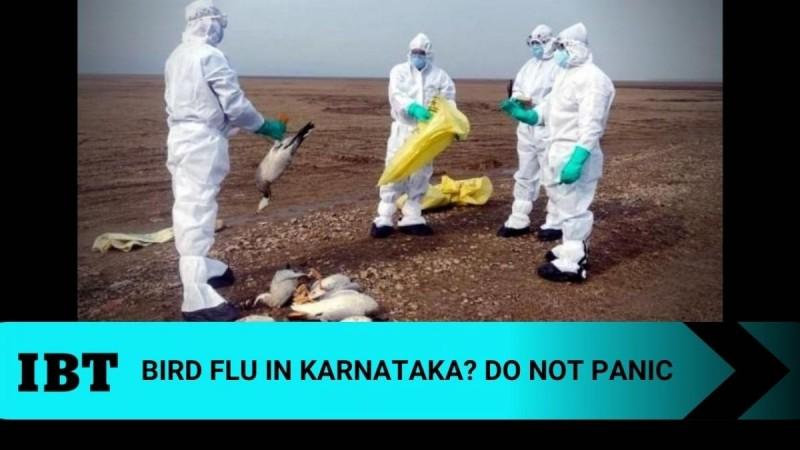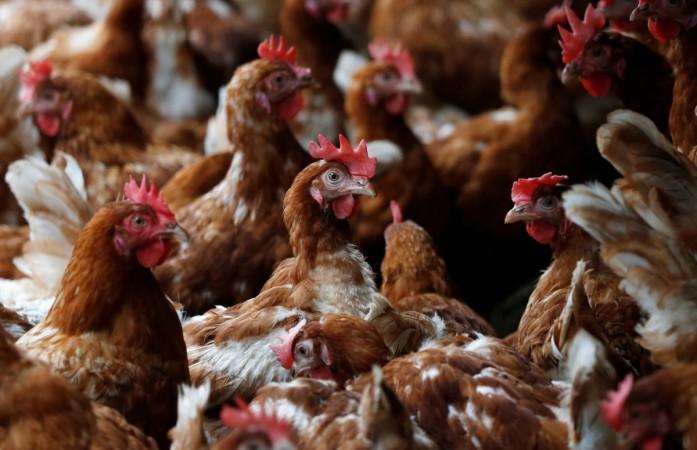A day after the Kerala government declared the outbreak of bird flu (H5N8) in two southern districts as a state disaster, Karnataka has put four bordering districts on high alert.
The deputy commissioners were sent a general alert and Dakshina Kannada, Mysuru, Madikeri and Udupi were put on high alert after Kerala declared avian influenza a state disaster.
All transport of poultry and birds from Kerala to Mysuru has been stopped due to the bird flu scare. All vehicles coming from Kerala at Bavali check post in Mysore will be sanitised.
M Anjana, DC, Kottayam, Kerala, on bird flu cases said that Bird flu has been detected in the ducklings of one of the farmers in the Neendoor panchayat. All 10,000 birds in the area will be culled. The process to test humans to detect symptoms in them has also been started."

Several states from North, West and South India are witnessing a sporadic rise in the cases of Avian Influenza (bird flu). States like Himachal Pradesh, Rajasthan, Madhya Pradesh and Kerala have reported close to 25,000 deaths predominantly of ducks, crows and migratory birds.
What is Bird Flu?
It is a highly contagious viral disease caused by Influenza Type A viruses which generally affects poultry birds such as chickens and turkeys. There are many strains of the virus – some of them are mild and may merely cause a low egg production or other mild symptoms among chickens, while others are severe and lethal.
The doctors said that the risk of human-to-human transmission of the H5N1 virus that causes the bird flu is very rare unless one works in proximity with the infected species of birds.
What experts say about Bird Flu?
The doctors said that the risk of human-to-human transmission of the H5N1 virus that causes the bird flu is very rare unless one works in proximity with the infected species of birds.
Dr. Upali Nanda, Head, Preventive Health & Consultant-Medicine, Medeor Hospital Qutab Institutional Area (Delhi), also said that human-to-human transmission of the Avian Influenza is very unusual.
Meanwhile, the public has started to ditch eggs and chicken meat in fear that it might carry the H5N1 virus and could infect the ones who would consume it. While there is no connection between the spread of Avian Influenza and consumption of eggs, the doctors suggested ditching undercooked poultry products and meat for a while to allay the fear.
"There is no evidence available that suggests the spread of bird flu through eating meat or eggs. Nonetheless, eating raw meat and eggs should be avoided in the affected region till the incidents come down," advised Dr. Salve.

He goes on to add that the public should not let their guards down and continue to follow the safe and hygienic practices adopted amid the pandemic to steer clear from any possibility of encountering the H5N1 virus.
Dr. Nanda said that it is anyway not advised to eat semi-cooked meat and eggs. "People can also take extra precaution besides properly cooking the meat and poultry," she added.
"Wash your hands with warm water and soap, especially before and after handling the raw poultry and eggs. Use different utensils for cooking raw meat and make sure meat is cooked properly until steaming hot. Avoid direct contact with live and poultry birds," Dr Nanda advised.
She also suggested avoiding visiting live animal markets or poultry farms for now. "If need be, wear a mask and gloves all the time. Also, do not go near or touch bird droppings or sick and dead birds," Dr. Nanda added.
(With inputs from wires)








